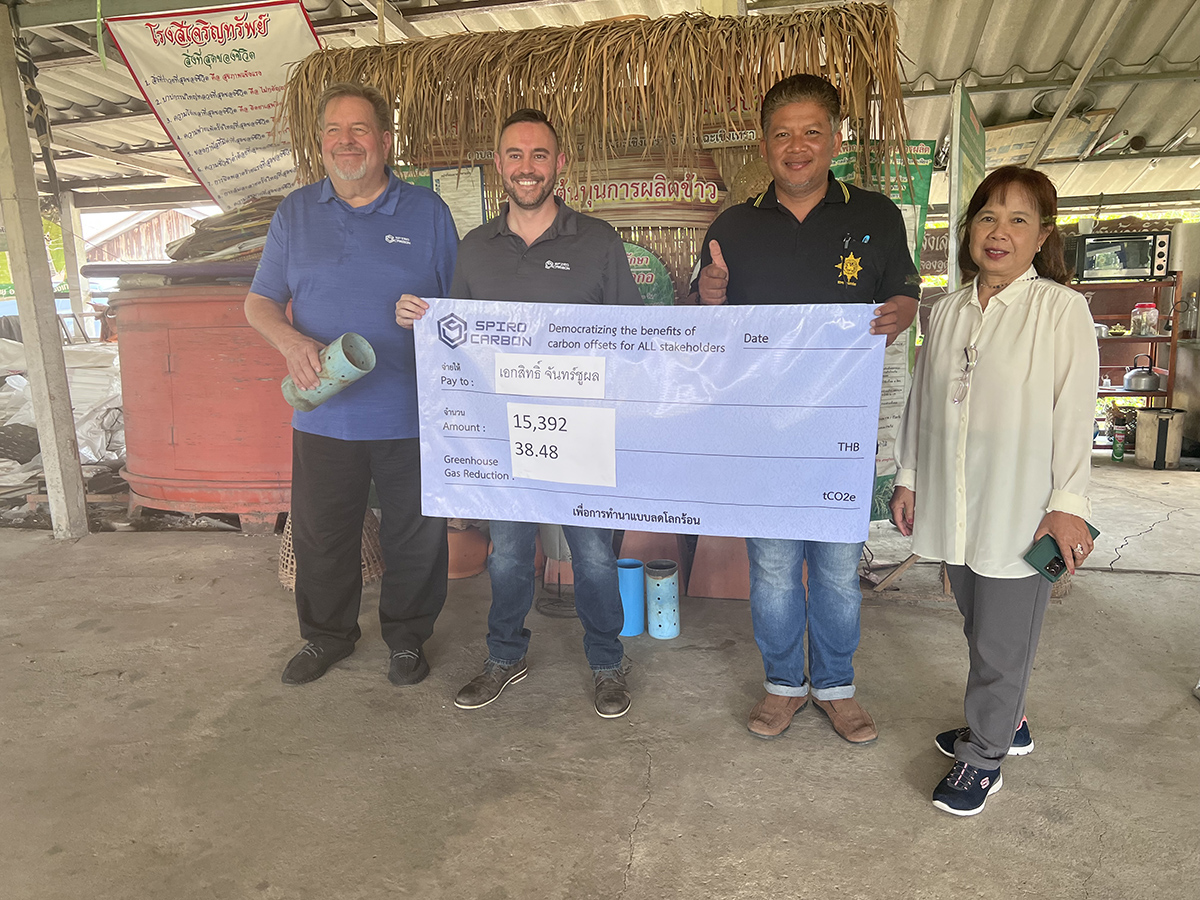Spiro Carbon enables robust sustainability monitoring across the agricultural supply chain, making the green transition accessible to all. We spoke to CEO, Ben Worley, about what their mission, and their fundraising journey so far.
“There are so many components to a successful fundraising campaign and each one takes you away from actually building the business. Valuation defense is a big one and one that has a lasting impact on your business from initial funding through exit.”
What is Spiro Carbon?
Spiro Carbon provides highly scalable, transparent and credible monitoring, reporting and verification (MRV) technology for global sustainability activity across the agricultural supply chain. Our proprietary multisource data collection and artificial intelligence analytics makes accurate verification for a wide variety of sustainability activities easily scalable from the smallest of remote farms to the largest industrial plantations. We believe in radical transparency and utilize blockchain technology to create an unassailable record of the actual sustainable impact, fully traceable upstream and downstream from the activity.
We lower the cost, complexity and inequality of traditional monitoring, reporting and verification within sustainability projects while increasing reliability and credibility. This means that organizations of any size can affordably participate in GHG reduction activities and creates more equitable access to the benefits of carbon markets for those currently excluded. Our technology makes it easy for an organization to confidently implement sustainability plans without the risk of greenwashing accusations through accurate and transparent MRV.

Our mission is to make the Green Transition accessible for everyone. Our founding team has worked in agriculture technology for decades and one of the primary issues that confounded us was the vast inequality for farmers, especially smallholder farmers, in the agriculture value chain. Climate change has a disproportionate impact on smallholder farmers and our mission is to create a system that allows them to sustainably participate in the financial benefits of climate finance mechanisms.
How has the market for carbon sequestration developed in recent years?
Consumer awareness has increased over the past several years but so too has the scrutiny on the industry. Many more companies are being forced to look at their overall sustainability footprint either through regulatory, tax or consumer-driven means and this is reverberating up and downstream along supply chains such that it is no longer just the big companies that have to address the issues.
The various scandals in the industry have done some significant damage in the short term to the idea of carbon credits/offsets as a whole. Critics have long been skeptical about the efficacy of carbon offsetting and these very public scandals have only worked to bolster their initial claims. And even though we promote the use of carbon offsets as one part of a decarbonization strategy, we first and foremost advocate starting with internal reductions before anything else. But it is unrealistic that many industries will be able to fully decarbonize and so a mechanism must exist that allows them to reduce or offset the remainder. The recent scandals, we believe, will have a long-term beneficial impact on the industry as greater transparency, traceability and accuracy will be required for greater credibility. Spiro Carbon believes strongly in radical transparency throughout the process so this shift in demand for greater accountability is a good thing for us as well as the future of the industry.
One other aspect of the industry that we believe will benefit from greater scrutiny is the inequality in the financial incentives of carbon projects. Many carbon projects leave only a small portion of the financial benefits to the people on the ground actually making the change or the local communities most affected by it. Social and economic impact have been two core focus areas for us from the beginning and we’re proud to have helped hundreds of farmers earn and keep the bulk of the value of what they produce; creating a new source of revenue to supplement the dwindling value of their traditional crops. Greater public awareness of the inequalities in many large, traditional carbon projects will hopefully drive change in this area as well leading to a more just and financially sustainable future for the industry.
What’s your impression of investor sentiment around climate tech?
The last couple years have been tough for fundraising and the climate sector has not been completely immune to that. But, it does seem to have weathered the funding drought better than many other sectors and I think that is because most investors see sustainability as an inevitability. Greater government funding, regulations, taxes, legal liability and consumer demand are clearly all moving in one direction so many investors seem to understand that climate tech is very much a growth industry albeit a nascent one. It is also a fairly blue ocean market so the opportunity of finding a winner in its early days is not only possible but very likely. I’ve raised money for companies in other spaces and this one so far seems to garner significantly greater interest from a wider variety of investor types.
Other than capital, what did you take away from the fundraising process?
I’ve been through the fundraising process before. I didn’t enjoy it then and I still don’t enjoy it. I think very few entrepreneurs enjoy the process but one of the things I learned this time around changed my perspective just a bit on what I had previously regarded simply as a necessary evil. By pitching the company so many times to so many different organizations, it really gave me an opportunity to examine the minutiae of the idea. Nuances about the process and value proposition that likely would not have been as evident were made plain when running up against the wall of people whose job it is to forecast if and how you will fail. This is a powerful tool you get for free when you are fundraising. If I had thought about it this way from the beginning, I would have likely approached the process differently or at least with a different perspective.
What part did Equidam play in that for you?
Equidam made a big difference for us in the fundraising process for one simple reason; it took away the concerns around defending valuation and gave us a very strong position from which to begin negotiating. By removing the worry about valuation, I could focus on tailoring the story, the pitch and finding the perfect target investors. There are so many components to a successful fundraising campaign and each one takes you away from actually building the business. Valuation defense is a big one and one that has a lasting impact on your business from initial funding through exit. So it’s not something to take lightly but many entrepreneurs tend to gloss over this and go into negotiations with a position based on feeling or where they want to end up rather than a realistic, data-driven number. Equidam helps put entrepreneurs in a stronger position from the very beginning.


